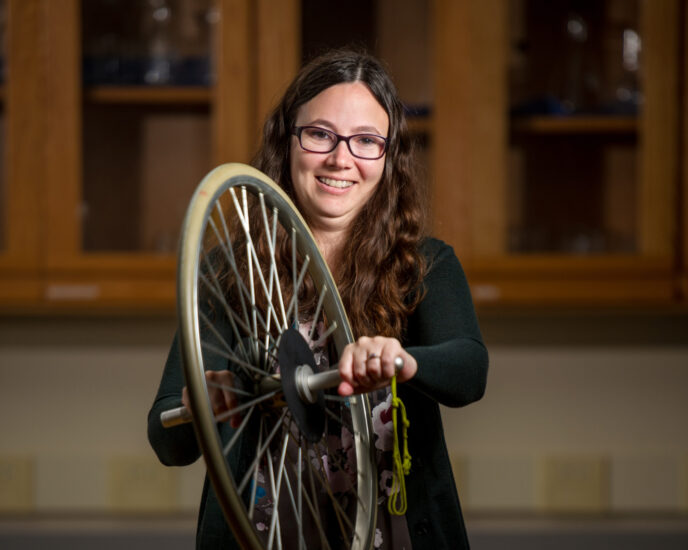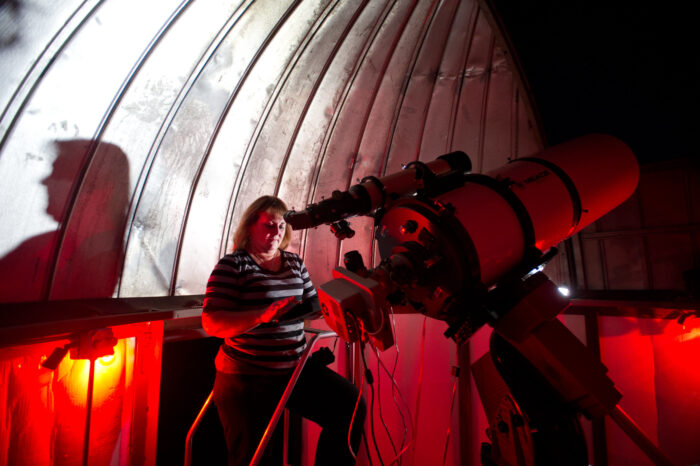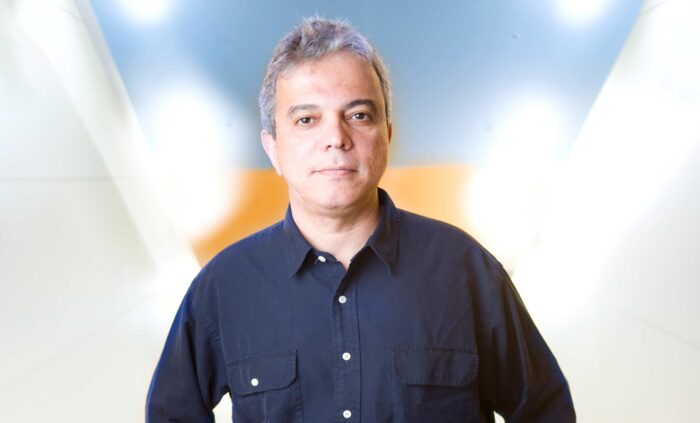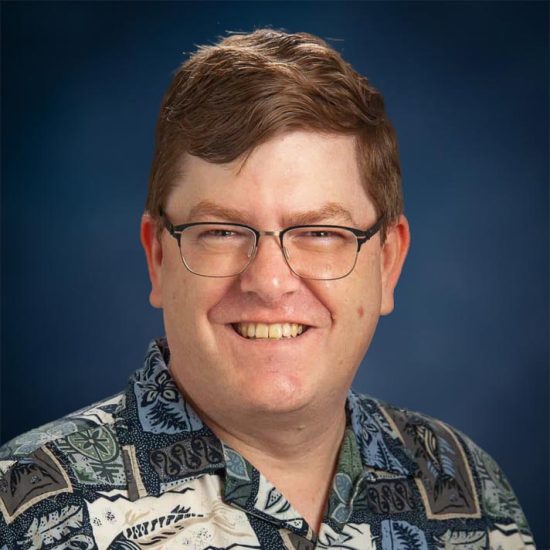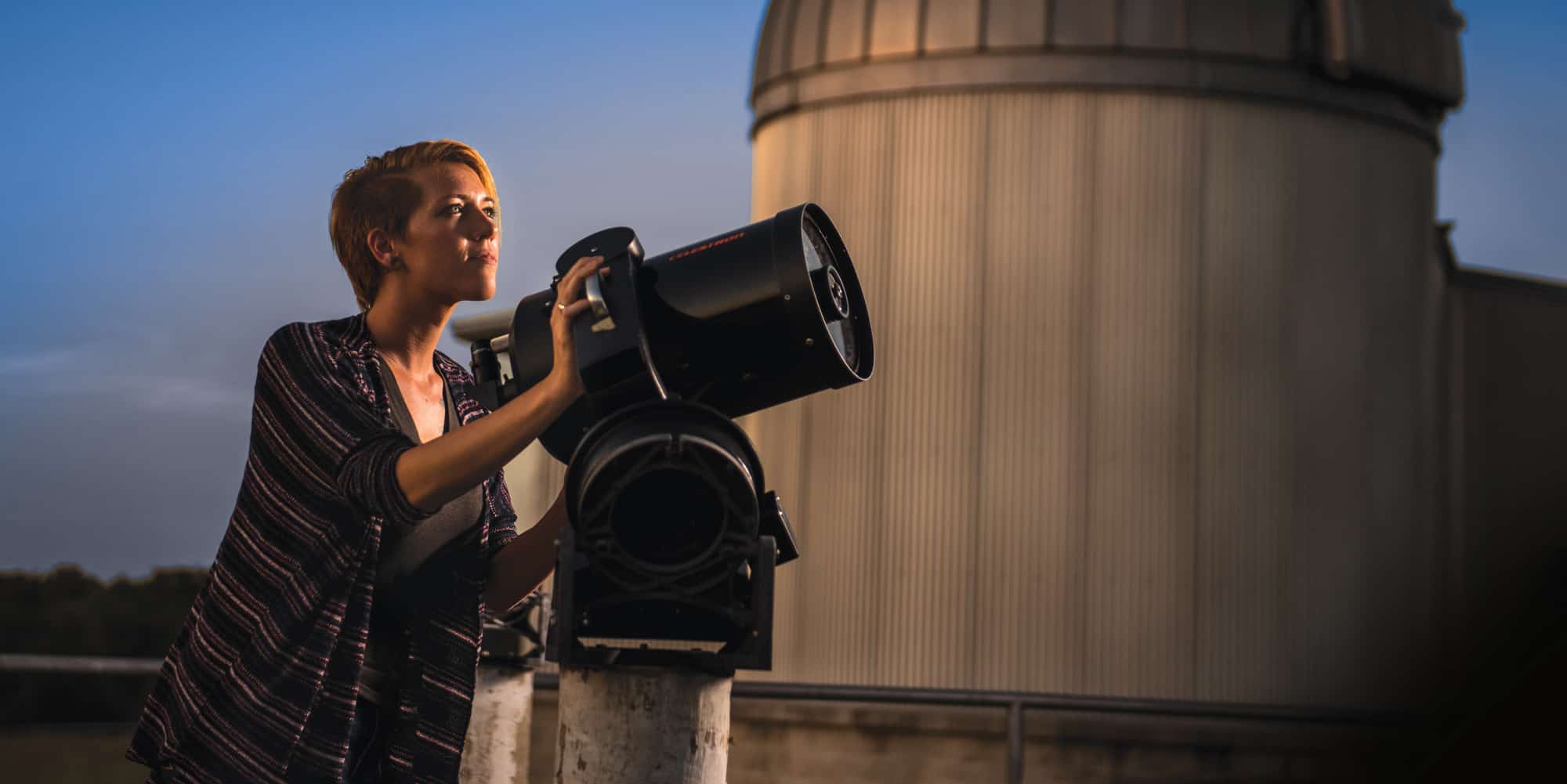
- On this page:
-
 Careers
Careers
-
 Emphasis
Emphasis
-
 Faculty
Faculty
-
 Cost
Cost
-
 Admission
Admission
-
 Featured Courses
Featured Courses
-
 Learn More
Learn More
-
 Contact Us
Contact Us
Physics (MS)
Dive deeper into astronomy, astrophysics, nuclear physics, physics education, organic semiconductor physics, solid-state physics, X-ray spectroscopy and surface physics.
Extend Your Understanding of the Universe
Contemplate the origin and evolution of the universe with our Master of Science in Physics degree. Choose from three different tracks that meet your research interests and career goals. Our department offers sophisticated equipment for research in organic semiconductor physics, solid-state physics, X-ray spectroscopy and surface physics. In addition, the department is a member of the Southeastern Association for Research in Astronomy (SARA), which provides remote access to three 1-m class telescopes at Kitt Peak National Observatory (KPNO) in Arizona, Cerro Tololo International Observatory (CTIO) in Chile, and Roque de los Muchachos Observatory (ORM) in the Canary Islands. The department also operates an observatory located 5 miles south of campus that provides hands-on and remote access to a 0.7-m telescope – the largest in northeast Texas.
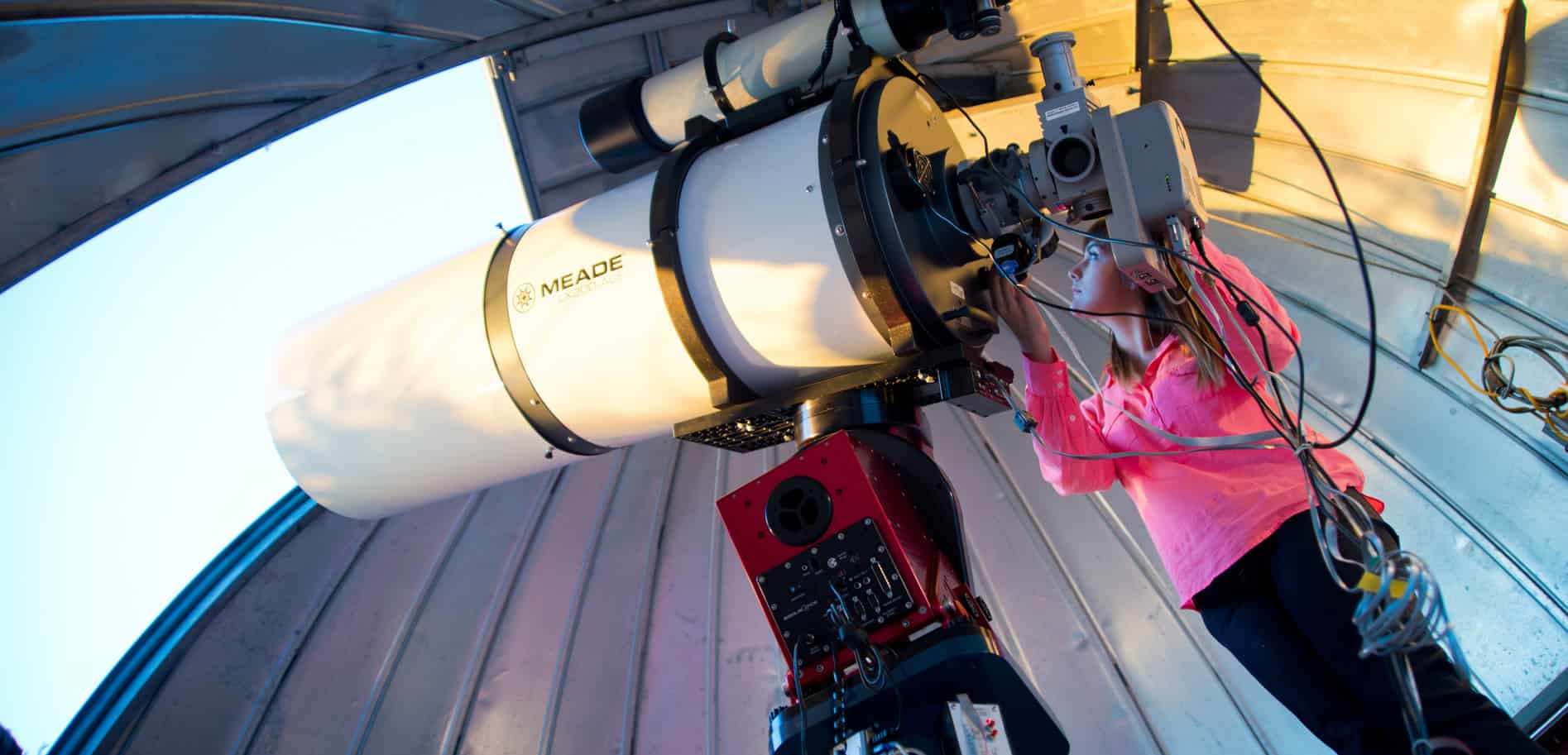
Careers
Physics students can apply their in-depth knowledge in labs, research institutes and other related areas. Broaden your network and gain real-world experience with internships and career opportunities.
Career Possibilities and Current Median Salaries
US DOL Bureau of Labor Statistics, Occupational Outlook Handbook, 2022
See Yourself Succeed with a Degree In Physics
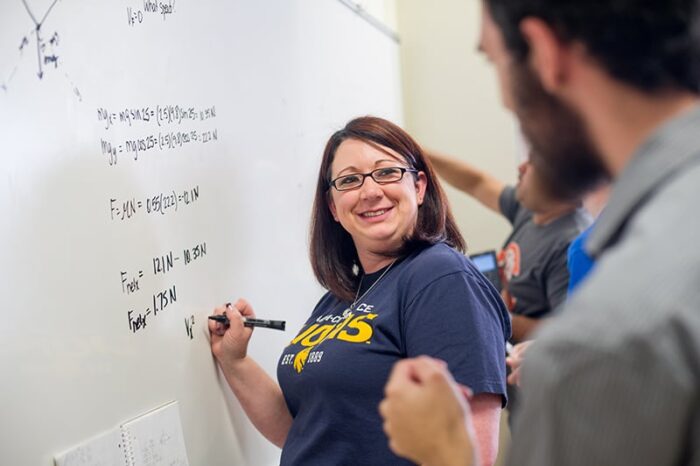
Innovation and Discovery
Take on our mission to build a better Texas that is eager to compete in an interconnected world with creativity, ethical leadership and imagination. We don’t just discover the future, we make it.

Career Readiness
The College of Science and Engineering is a gateway to in-demand STEM careers projected to make up a significant portion of the U.S. and global economy.
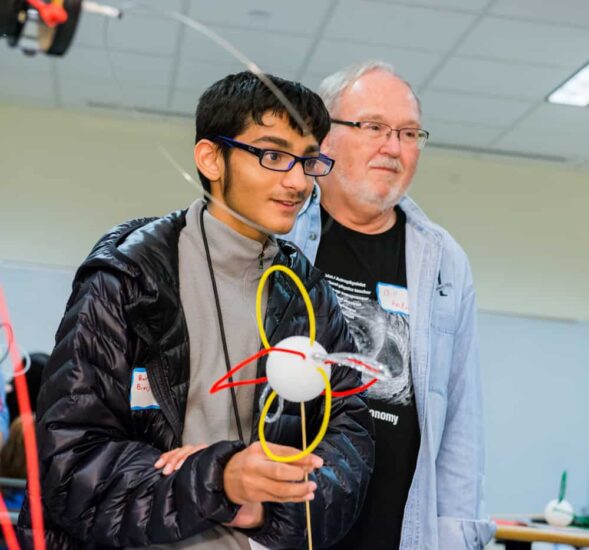
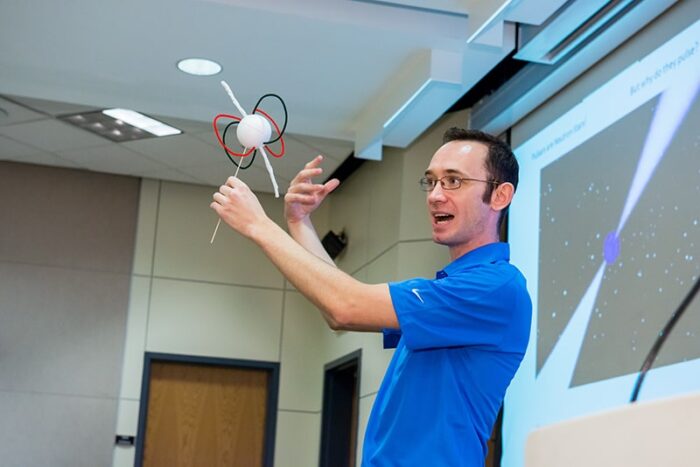
Accomplished Faculty
Shape an innovative framework with an award-winning faculty including four Regents Professors, a highly selective honor for exemplary contributions to their university, community and the State of Texas.
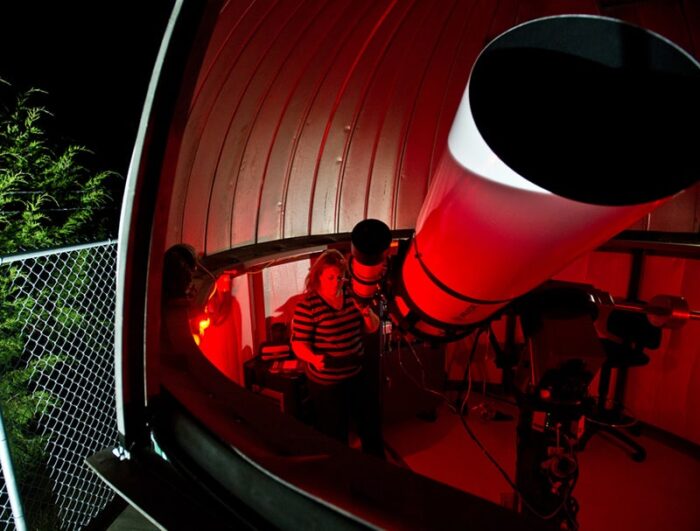
Hands-On Experience
Our faculty will help you tackle complex challenges and discover solutions with hands-on research in various fields.
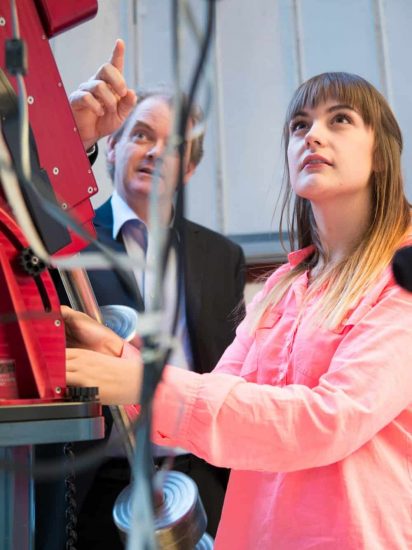
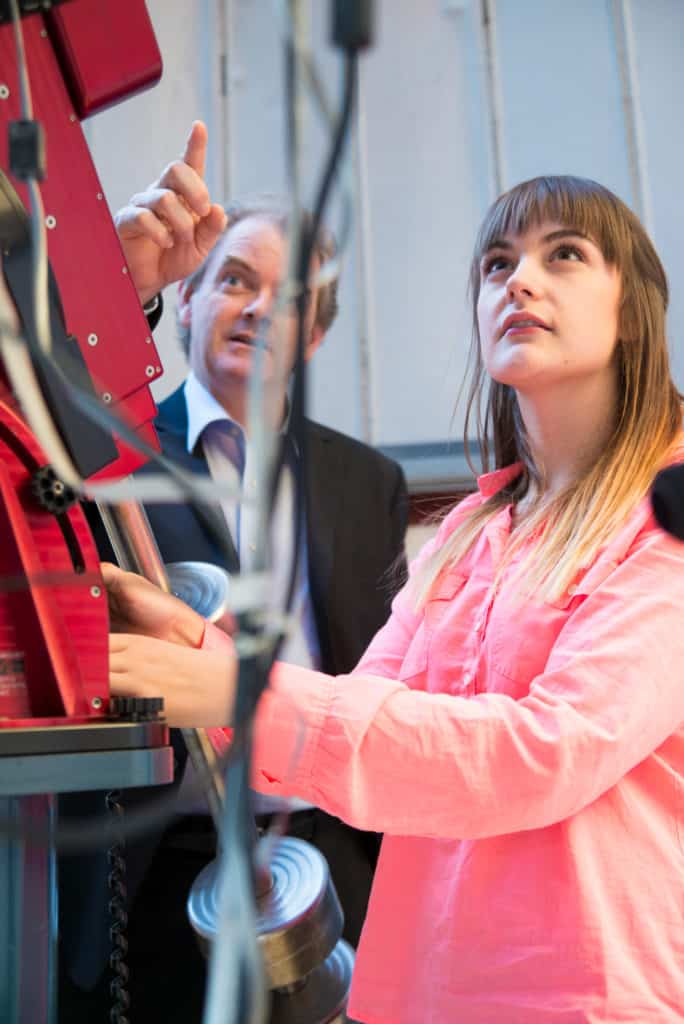
What You Will Learn
Use your knowledge to develop new products and technologies while studying at A&M-Commerce. You’ll have access to our organic semiconductor physics laboratory, surface physics laboratory, campus observatory and research-grade telescopes. You’ll also benefit from our access to three 1-m telescopes through our membership in the SARA Telescope Consortium.
Courses to Prepare for Your Career
- Core courses include advanced classical mechanics, mathematical methods in physics and quantum mechanics.
- Take on advanced research in fields such as astrophysical hydrodynamics
- Join a nuclear theory group that calculates the infusion reaction of neutron stars and supernova cores
- Utilize well-equipped research laboratories and telescopes at A&M-Commerce
- Benefit from access to three SARA space telescopes located around the world
Focus Your Passion
Our department offers three tracks at the graduate level to match your research interests and career goals. The thesis track is recommended for those pursuing doctoral programs. Discover which program works best for you.
Thesis
The Master of Science in Physics thesis track prepares you for industrial employment, college teaching or further graduate study. We recommend this program if you are interested in earning your doctorate. This face-to-face degree program requires a minimum of 30 semester hours, including two courses allotted to the thesis.
Physics Teaching Emphasis (Non-Thesis)
The fully online teaching emphasis is designed for physics educators who wish to teach at the community college level or dual enrollment courses. An undergraduate degree in physics is not required, but we suggest undergraduate courses in calculus-based physics, modern physics and mathematics through differential equations.
Applied Physics Emphasis (Non-Thesis)
Learn practical, hands-on physics with this face-to-face program offering. An applied physicist is a generalist who contributes in several different areas within a technology company. The 36-hour, non-thesis emphasis prepares you for careers in the scientific, engineering and programming industries.
Faculty Spotlight
Robynne Lock, Ph.D.
I'm always trying to push forward my teaching and make sure the way…
Kent Montgomery, Ph.D.
Cheri Davis, Ed.D.
Carlos Bertulani, Ph.D.
Internship opportunities
Internship experience provides the foundation employers are often looking for. Although not required for your degree, internships are an important part of your education experience. These are just a few of the companies that partner with Student Career Preparedness and offer opportunities for A&M-Commerce physics students.
Student Organizations
Society of Physics Students
Our organization sponsors physics activities and provides opportunities to meet with researchers from other institutions. In addition, you will gain the opportunity to open your social network to like-minded individuals studying the same field.
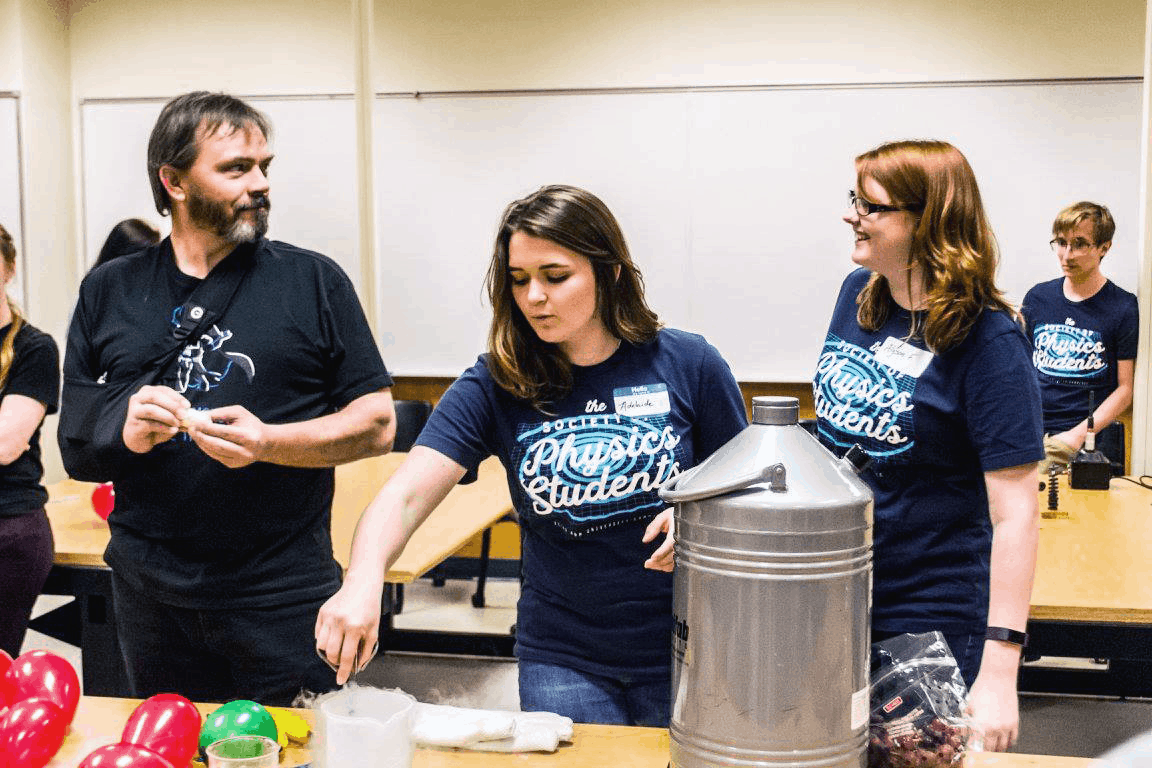
PROGRAM COSTS
Tuition and fees for graduate students taking nine credit hours are $3,669 for Texas residents and $7,341 for non-residents.
Admission
Your Path to Becoming a Lion
- Select “Create a new graduate school admissions application.”
- Select “Texas A&M University-Commerce (Commerce)” as your “Target University.”
- Select “Physics, MS” as your “Major.”
Domestic Application Fee 395064
- Pay the $50 application fee.
Wait to receive an application confirmation email before proceeding to the next step.
- After you submit your application, the Graduate School will send a confirmation email within two business days to the personal email account you used for ApplyTexas.
Provisional Status
After you submit your application, you may be granted provisional status, which means you can enroll in one semester of courses. You will not be eligible for financial aid until you submit all of your documents and are accepted into the program.
Submit the following documents after you receive an application confirmation email.
- Upload your documents at myLeo > Apps > Check Admissions Application Status & Test Scores or email your documents to your graduate coordinator unless otherwise specified below.
Graduate Coordinator DeRene Sutton 395159
Your Graduate Coordinator
Contact your previous institution(s) and request that they send your official transcripts to your graduate coordinator.
- We recommend that you request transcripts for all of your academic work.
All international transcripts must be evaluated and the evaluation submitted to the Graduate School.
We accept evaluations sent directly from the following Agencies.
- If a normal evaluation is submitted, official original transcripts with all marksheets will still need to be submitted.
- If a WES ICAP or equivalent is submitted, we will not need the official transcripts to be submitted separately.
If your institution is unable to submit a digital copy, hard copies may be mailed to:
Texas A&M University-Commerce
Attn: Graduate School
PO Box 3011
Commerce, Texas 75429-3011
We will need official/original documents. If those documents are the only copies you have, the Graduate School can mail them back to you upon request. Contact your graduate coordinator for more information.
Request one signed letter of recommendation, on letterhead, from a professional who can attest to your goals and ability to succeed in the program. That individual should:
- Email the letter to your graduate coordinator or
- Send the letter to you. Then, you will utilize the upload system: myLeo > Apps > Check Admissions Application Status & Test Scores
If you are unable to submit a digital copy, hard copies may be mailed to:
Texas A&M University-Commerce
Attn: Graduate School
PO Box 3011
Commerce, Texas 75429-3011
Describe any previous research or teaching experience, your academic interests, and career goals in 300-600 words.
Submit a resume or curriculum vitae (CV) which includes your academic and professional history and achievements.
Look for application updates in myLeo > Apps > Check Application Status
- Once an admission decision has been made, you will receive an email to your student email account at myLeo > Apps > Leomail.
- Apply for scholarships and graduate assistantships once you are admitted.
- Apply for financial aid by submitting a FAFSA and sending it to school code 003565.
- Contact your financial aid advisor with any questions.
Once registration opens and you are eligible to enroll, your graduate enrollment specialist is here to help you complete registration.
- View your degree plan in DegreeWorks.
- View the schedule of classes.
- To register for classes, go to myLeo > Student Resources > Registration Menu.
Contact your graduate enrollment specialist if you have any questions regarding your degree plan and registration.
Graduate Enrollment Specialist Jennifer Faunce
Your Graduate Enrollment Specialist
Deadlines
- Fall admission consideration: May 10
- Spring admission consideration: October 15
- Summer admission consideration: March 15
Applicants must have a completed admissions file by May 10 for fall consideration.
- Select “Create a new graduate school admissions application.”
- Select “Texas A&M University-Commerce (Commerce)” as your “Target University.”
- Select “Physics, MS” as your “Major.”
Domestic Application Fee 395064
- Pay the $50 application fee.
Wait to receive an application confirmation email before proceeding to the next step.
- After you submit your application, the Graduate School will send a confirmation email within two business days to the personal email account you used for ApplyTexas.
Submit the following documents after you receive an application confirmation email.
- Upload your documents at myLeo > Apps > Check Admissions Application Status & Test Scores or email your documents to your graduate coordinator unless otherwise specified below.
Graduate Coordinator DeRene Sutton 395159
Your Graduate Coordinator
Contact your previous institution(s) and request that they send your official transcripts to your graduate coordinator.
- We recommend that you request transcripts for all of your academic work.
If you are unable to submit a digital copy, hard copies may be mailed to:
Texas A&M University-Commerce
Attn: Graduate School
2600 S. Neal St.
Commerce Texas 75428
We will need official/original documents. If those documents are the only copies you have, the Graduate School can mail them back to you upon request. Contact your graduate coordinator for more information.
All international transcripts must be evaluated and the evaluation submitted to the Graduate School.
We accept evaluations sent directly from the following Agencies.
- If a normal evaluation is submitted, official original transcripts with all marksheets will still need to be submitted.
- If a WES ICAP or equivalent is submitted, we will not need the official transcripts to be submitted separately.
Request one signed letter of recommendation, on letterhead, from a professional who can attest to your goals and ability to succeed in the program. That individual should:
- Email the letter to your graduate coordinator or
- Send the letter to you. Then, you will utilize the upload system: myLeo > Apps > Check Admissions Application Status & Test Scores
If you are unable to submit a digital copy, hard copies may be mailed to:
Texas A&M University-Commerce
Attn: Graduate School
2600 S. Neal St.
Commerce Texas 75428
Describe any previous research or teaching experience, your academic interests and career goals in 300-600 words.
Submit a resume or curriculum vitae (CV) which includes your academic and professional history and achievements.
You do not need to submit test scores if you have completed (all years) of a bachelor's or higher degree from a regionally accredited university in the United States.
Request that your scores from one of the following be sent to Texas A&M University-Commerce:
- TOEFL (Minimum Scores: IBT 79, or CBT 213, or PBT 550)
- IELTS (Minimum Score: 6.00 band overall)
- PTE (Minimum Score: 53 overall or higher)
- Duo Lingo (Minimum Score: 105)
*Scores must be less than two years old.
Submit these documents to the Office of International Programs once you have been admitted
- Official sponsor statement
- Bank statement from the sponsor with a balance of at least $26,025 USD which is less than 1 year old
See the Office of International Program's “Confirmation of Financial Resource” for more details.
Look for application updates in myLeo > Apps > Check Application Status
- Once an admission decision has been made, you will receive an email to your student email account at myLeo > Apps > Leomail.
- Apply for scholarships and graduate assistantships once you are admitted.
Once registration opens and you are eligible to enroll, your graduate enrollment specialist is here to help you complete registration.
- View your degree plan in DegreeWorks.
- View the schedule of classes.
- To register for classes, go to myLeo > Student Resources > Registration Menu.
Contact your graduate enrollment specialist if you have any questions regarding your degree plan and registration.
Graduate Enrollment Specialist Jennifer Faunce
Your Graduate Enrollment Specialist
Featured Courses
We are here to help!
Contact Us
- Department of Physics and Astronomy
- 903.886.5488
- 903.886.5480
- [email protected]
- P.O. Box 3011
- Commerce, TX 75429-3011



